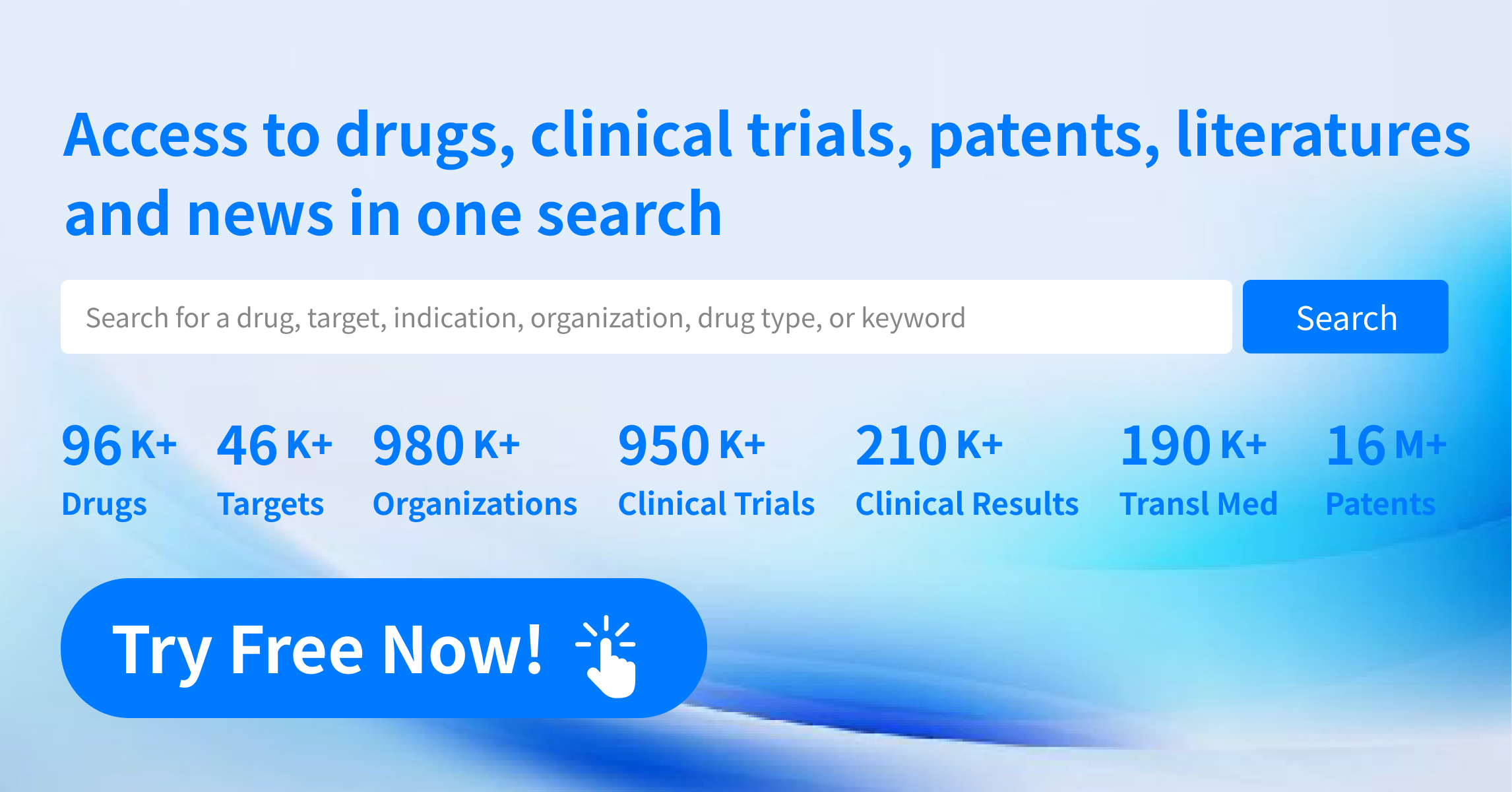Global Pharmaceutical Industry Financing Transactions Weekly Report (9.16-9.22)
Pharmaceutical licensing collaboration
1.Novo Nordisk Collaborates to Develop RNA Editing Drugs in a $530 Million Deal
On September 16, Korro Bio has entered into a collaboration with Novo Nordisk to develop RNA editing candidates targeting two undisclosed targets, which could be used to treat diseases such as obesity, diabetes, and cardiovascular conditions. Under the agreement, Novo Nordisk will pay $530 million in upfront and milestone payments, in addition to tiered royalties and research funding for the two projects. Korro Bio will be responsible for preclinical development of the projects, after which Novo Nordisk can opt to proceed with clinical testing.
Korro Bio stated that its OPERA platform uses oligonucleotides to "leverage natural processes within the human body" by modifying mRNA to regulate protein function. Since this technology does not alter DNA, its RNA editing method is precise and tunable, with the potential for increased specificity and long-term tolerability.
2.MaxCyte Partners with Kamau to Develop Gene Therapy for Genetic Diseases
On September 16, MaxCyte has entered into a partnership with Kamau Therapeutics, granting Kamau non-exclusive research, clinical, and commercial rights to MaxCyte’s Flow Electroporation technology and ExPERT platform to support the development of Kamau’s novel gene correction technology using homology-directed repair (HDR). MaxCyte is entitled to annual license fees and revenue associated with the project.
Kamau is a next-generation gene correction company, leveraging HDR editing technology based on the first-generation CRISPR-Cas9 system, which not only cuts DNA but also provides a template for DNA repair. MaxCyte's ExPERT instrument portfolio offers next-generation electroporation technology, facilitating complex and scalable cell engineering.
3.AbbVie Partners with Ripple Therapeutics in a $300 Million-Plus Glaucoma Therapy Deal
On September 17, Ripple Therapeutics announced a collaboration and licensing agreement with AbbVie to develop the next-generation glaucoma treatment, RTC-620. Under the agreement, Ripple will lead preclinical development of RTC-620, while AbbVie will handle its clinical and commercialization activities once the option is exercised. Ripple will receive $21.8 million upfront and could earn up to $290 million in option and milestone payments, along with tiered royalties on net sales.
RTC-620 is a biodegradable, sustained-release anterior chamber implant designed for repeat administration to reduce intraocular pressure in patients with open-angle glaucoma or ocular hypertension. Ripple’s innovative drug delivery platform allows for controlled drug release without the use of polymers or excipients.
4.Nippon Shinyaku Secures $1.5 Billion Distribution Rights for New DMD Drug
On September 17, Nippon Shinyaku and Capricor Therapeutics announced the signing of a letter of intent to engage in exclusive negotiations over the distribution rights for CAP-1002 (Deramiocel) in Europe for the treatment of Duchenne muscular dystrophy (DMD). Under the agreement, Capricor will receive a $15 million equity investment and a $20 million upfront payment upon the signing of the final agreement. The deal also includes potential milestone payments up to $715 million, with double-digit royalties on product revenue, bringing the total potential deal value to approximately $1.5 billion.
CAP-1002 is an exosome-based cell therapy composed of human allogeneic cardiosphere-derived cells (CDCs) and is intended for the treatment of various forms of DMD, regardless of the genetic mutation type. A Phase 2 trial conducted in the U.S., HOPE-2, showed that the therapy improved upper limb and heart function in advanced DMD patients. CAP-1002 is currently undergoing a Phase 3 study, HOPE-3, across several hospitals in the U.S.
5.Vectura Fertin Pharma Sells Subsidiary for Nearly £300 Million
On September 17, Philip Morris International's subsidiary, Vectura Fertin Pharma, announced the sale of its subsidiary Vectura to Molex Asia Holdings. As part of the deal, a master service agreement (MSA) has been established to develop Vectura Fertin Pharma's proprietary inhalation therapy pipeline. The sale includes £150 million in upfront cash consideration, with potential deferred payments of up to £148 million.
Vectura specializes in the design and formulation of inhaled drug delivery devices. After the sale, Vectura will be operated under Molex’s Phillips Medisize division, enhancing the latter’s capability to offer a broader range of inhalation combination drug devices and solutions to pharmaceutical customers.
6.Axcelead DDP Collaborates with Eli Lilly to Develop Multiple Drugs
On September 18, Axcelead DDP announced a strategic research and collaboration agreement with Eli Lilly on multiple drug discovery projects. Axcelead DDP, leveraging its comprehensive drug discovery capabilities and innovative technologies (including artificial intelligence), is committed to advancing innovation in drug discovery. Under the agreement, Axcelead DDP will receive upfront payments and will be eligible for additional milestone payments based on the progress of each drug discovery project.
7.Organon Acquires Dermavant for $1.2 Billion
On September 18, Organon and Dermavant Sciences announced a definitive agreement under which Organon will acquire Dermavant, including its innovative therapy Vtama (tapinarof) cream. Dermavant Sciences is a biopharmaceutical company specializing in immunodermatology. Under the agreement, Organon will pay $175 million in upfront payments, $75 million in milestone payments, and up to $950 million in commercial milestone payments. Vtama cream is a non-steroidal, once-daily topical treatment that reduces inflammation and restores the skin barrier by activating aryl hydrocarbon receptors in the skin. The product was approved by the U.S. FDA in May 2022 for the treatment of adults with mild, moderate, and severe plaque psoriasis. The FDA is also reviewing a supplemental new drug application (sNDA) for the drug as a potential treatment for atopic dermatitis in adults and children aged two years and older.
8.Aosairui Biomedical and Puli Pharmaceutical Sign Collaboration Agreement
On September 19, Aosairui Biomedical and Puli Pharmaceutical announced the signing of a collaboration agreement for the research and development of iron-based nano MRI contrast agents at the IND stage. This agreement builds on the progress Puli Pharmaceutical has made with its novel polydopamine micelle-based MRI contrast agent and the early-stage research and candidate compound (PCC) identification for tumor theranostics. Following the signing, the company will continue to develop the candidate compounds and pursue IND applications in compliance with regulatory requirements in both China and the United States.
9.Novo Nordisk Invests $600 Million in Extrahepatic LNP Delivery Technology
On September 19, NanoVation Therapeutics announced a collaboration with Novo Nordisk aimed at developing innovative gene therapies to treat cardiometabolic diseases and rare diseases. Under the agreement, NanoVation will receive research funding and is eligible to receive up to approximately $600 million in upfront and potential milestone payments over the course of the multi-year collaboration. Novo Nordisk will gain exclusive global rights to NanoVation’s LNP technology for two major projects, with the potential to expand to five additional targets for cardiometabolic and rare diseases.
NanoVation boasts a broad and expanding library of innovative lipids and LNP components and has developed a proprietary long-circulating lipid nanoparticle (lcLNP) RNA delivery technology. In preclinical studies, this technology has demonstrated higher efficacy, safety, and stability than traditional delivery systems, enabling the delivery of nucleic acids to various cell types beyond the liver.
Pharmaceutical Financing Events
1.Nura Bio Raises Over $140 Million in Series A Funding
On September 17, Nura Bio announced the completion of more than $140 million in Series A financing. This includes an initial $73 million announced in 2020, with an additional $68 million raised in this round. The funding was led by founding investor The Column Group, with participation from Samsara BioCapital, Euclidean Capital, and Sanofi Ventures.
Nura Bio is developing neuroprotective small-molecule therapies to treat debilitating neurodegenerative diseases. The lead asset in its small molecule pipeline, NB-4746, is a brain-penetrant SARM1 inhibitor that has demonstrated the ability to prevent axon degeneration and provide neuroprotection in preclinical models of various neurological injuries and diseases. Nura Bio plans to initiate a Phase 1b/2 trial of this product by 2025.
2.Nuvalent Completes $575 Million Follow-On Offering
On September 18, Nuvalent announced the completion of a large public offering of common stock, raising approximately $575 million in gross proceeds after deducting underwriting discounts, commissions, and other offering expenses.
Nuvalent focuses on creating precise targeted therapies for cancer patients, aiming to overcome the limitations of existing treatments targeting clinically validated kinase targets. The company is advancing multiple small-molecule drug candidates, including those targeting ROS1-positive, ALK-positive, and HER2-mutant non-small cell lung cancer, as well as several early-stage research programs in drug discovery.
3.Brenus Pharma Completes $25 Million Series A Funding
On September 18, Brenus Pharma announced the completion of a $25 million Series A funding round, led by the investment fund Angelor, with participation from UI Investissement, Fonds Régional Avenir Industrie, and others.
The proceeds from this financing will be used to fully fund the first-in-human proof-of-concept study for the STC-1010 cancer vaccine, which is being developed as a first-line treatment for metastatic colorectal cancer. The product is also planned to be expanded to other types of gastrointestinal tumors, such as pancreatic and liver cancers. Additionally, Brenus Pharma aims to accelerate the development of its product pipeline for other solid tumor indications, particularly its second candidate, STC-1020.
4.Syntax Bio Raises $15 Million
On September 18, Syntax Bio was founded with support from Astellas Venture Management and Illumina Ventures, raising $15 million. Other investors include DCVCBio, Civilization Ventures, EGB Capital, and Portal Innovations.
Syntax Bio focuses on leveraging its novel Cellgorithm platform technology to generate therapeutic cells from stem cells. This platform simulates human developmental processes at the epigenetic level, using a modified CRISPR system to regulate endogenous genes in an automated and time-controlled manner. By accelerating cell differentiation, this technology significantly reduces the time required to produce high-value cell types, addressing long-standing challenges in stem cell-derived therapies.
5.GC Therapeutics Raises $75 Million in Funding
On September 19, GC Therapeutics (GCTx) announced its emergence from stealth mode, having raised $65 million in Series A funding led by Cormorant Asset Management, bringing total funding to $75 million. Other investors include Mubadala Capital, Andreessen Horowitz (a16z) Bio + Health, and others.
GCTx is focused on developing first-in-class and best-in-class off-the-shelf cell therapies for the treatment of gastrointestinal, neurological, and immune diseases. Its TFome platform for induced pluripotent stem cell (iPSC) programming was invented and developed by a team of renowned scientists, overcoming the complexities of development and scaling associated with cell therapies.
6.ImmunOs Raises $11 Million in Series C Funding
On September 19, ImmunOs Therapeutics announced the completion of an $11 million Series C financing round. The round was led by Gimv, Pfizer Ventures, Mission BioCapital, and BioMed Partners, with support from new investor Double Point Ventures and other existing investors.
ImmunOs is currently using its immune modulation platform based on human leukocyte antigen (HLA) to develop first-in-class drugs for cancer and autoimmune diseases. The financing will further support ongoing clinical trials for its lead program, IOS-1002, aiming to complete the Phase 1a dose-escalation trial. IOS-1002 is a checkpoint inhibitor targeting LILRB1 (ILT2), LILRB2 (ILT4), and KIR3DL1, being developed for the treatment of advanced solid tumors.
For more information on the progress of pharmaceutical funding transactions, please consult the Synapse database.




